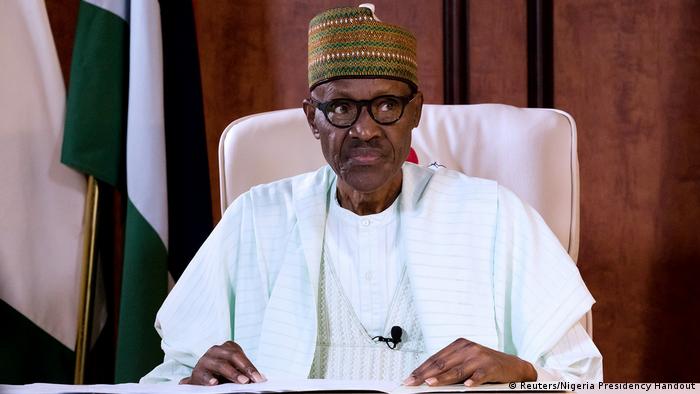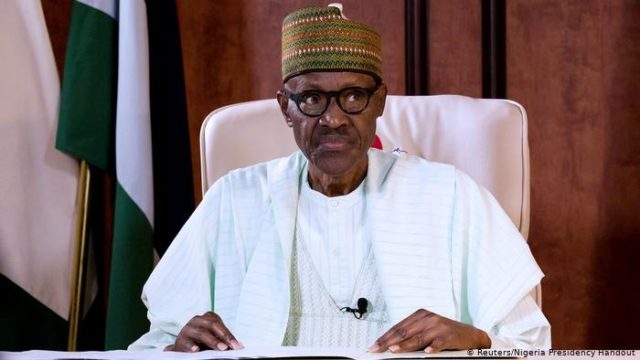
QueenEsther Iroanusi, Premiumtimes
Nigeria’s economy may relapse into a second recession in four years with significant negative consequences, President Muhammadu Buhari has said.
He said this during the 2021 budget presentation to a joint session of the National Assembly on Thursday.
The proposed expenditure is put at N13.08 trillion with crude oil benchmark price of $40 per barrel and daily oil production estimate of 1.86 million barrels.
The budget includes a N1.35 trillion spending by government-owned enterprises and grants and aid-funded expenditure of N354.85 billion.
In his presentation, the president said the 2021 budget was prepared amidst a challenging global and domestic environment due to the the COVID-19 pandemic, low oil prices and heightened global economic uncertainty.
The Nigerian economy is currently facing serious challenges, he said, with the macroeconomic environment being significantly disrupted by the pandemic.
Real GDP growth declined by 6.1 percent in the second quarter of 2020, according to the National Bureau of Statistics.
“This ended the three-year trend of positive, but modest, real GDP growth recorded since the second quarter of 2017. I am glad to note that, through our collective efforts, our economy performed relatively better than that of many other developed and emerging economies,” Mr Buhari said.
“GDP growth is projected to be negative in the third quarter of this year. As such, our economy may lapse into the second recession in four years, with significant adverse consequences.
“However, we are working assiduously to ensure a rapid recovery in 2021. We remain committed to implementing programmes to lift 100 million Nigerians out of poverty over the next 10 years,” he said.
The government is counting on its over N3 trillion economic stimulus plan to reduce the impact of that recession.
Shrinking
In August, Nigeria’s economy witnessed it’s biggest decline in 10 years, according to a report by the NBS.
The economy contracted by 6.10 per cent in the second quarter of 2020 from 5.06 per cent in the first quarter and 5.15 per cent in the second of 2019.
An economy is said to be in a recession when its size falls for two consecutive quarters, that is six months.
The Nigerian economy suffered its last recession in 2016.







